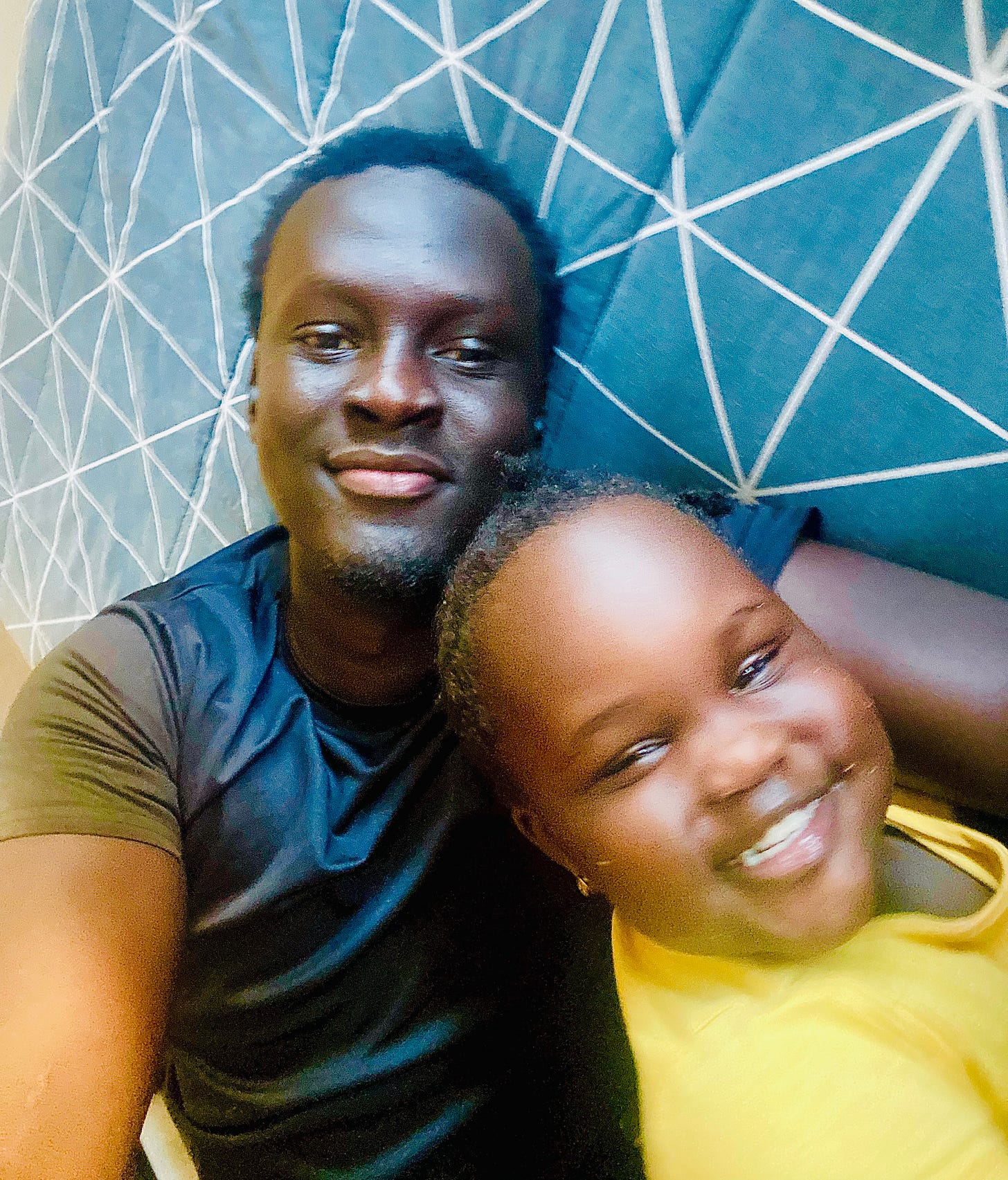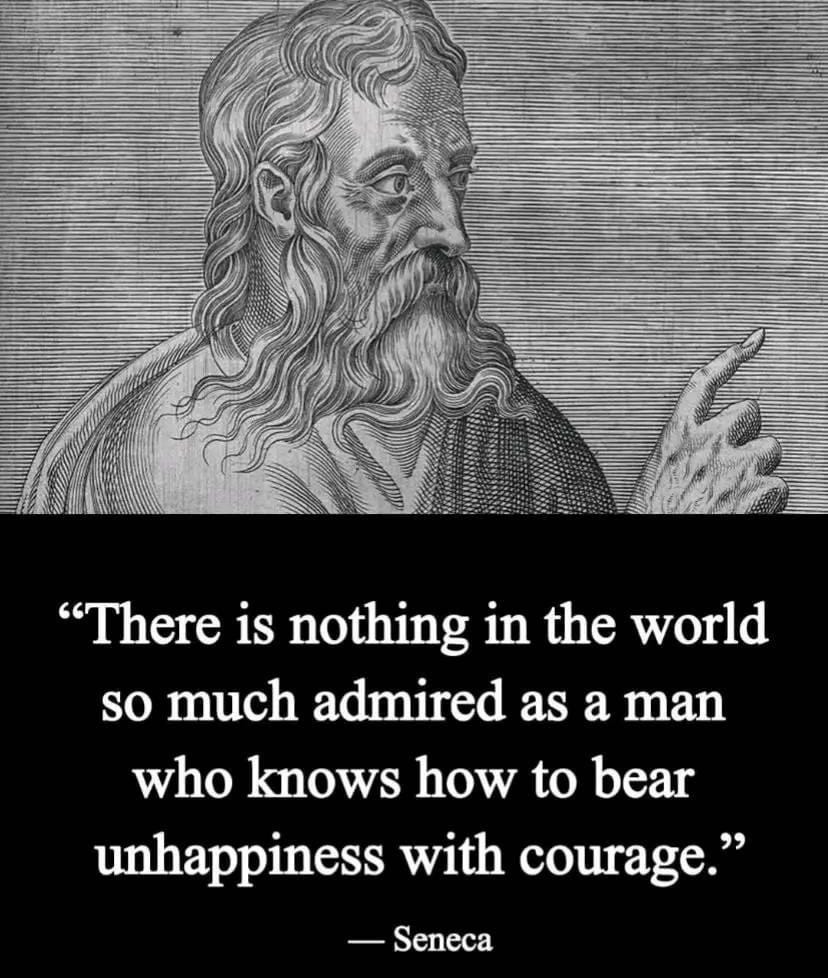Hey friends,
As you probably know or not, I'm a big advocate of Stoicism. Stoicism offers powerful tools for developing mental toughness, self-reliance, and inner strength when facing adversity. Stoicism has helped tremendously and provided me valuable insights and practice approaches to facing life's challenges with grace and composure, and I hope it will do the same for you.
I began being interested in the Stoic life two years ago because it resonated with my natural principles in life, and the death of my best friend further made me embrace Stoicism. Losing your best friend at the age of 25 just after Christmas; just days before your 26th Birthday messed me up forever. We'd been friends since the age of 5 years old. He's the brother I never had. There's not a day that goes by that I don't think about him, we were supposed to see each other get married, have kids, and become the men we were meant to become but life happened. After his death I was heading down the wrong path, until I discovered Stoicism and started practicing the lessons from Stoic Philosophers.
The thing is he's death sort of positively steeled me in the right direction. The pain of his departure made me know the reality of life; everything is temporary, and we can leave Earth at any time.
Below are some things I've learned from Stoicism and how you can incorporate them into your personal life.
The Stoic mindset for inner strength
Stoicism emphasises acceptance of the dichotomy of control, practicing negative visualisation, and embracing a sense of fate and misfortune. Stoics focus on understanding between what is within our control (thoughts, beliefs, actions), and what is not (other's actions and internal events).
Practicing stoicism, I have learned to accept uncontrollable factors, want specific outcomes, let go of unhelpful vices; and understand we control only our actions and perceptions. If we focus on our actions, rather than anything that depends on the actions of others or any other circumstance out of our direct control, we will be free. As Marcus Aurelius puts it, “You have power over your mind - not outside events. Realize this, and you will find strength.”
When something is outside outside of our control, Epictetus says, "Be prepared to say that it is nothing to you."
How to cultivate a Stoic personality
Exercising self-control is fundamental to cultivating a Stoic life. Stoics emphasize self-mastery and discipline to overcome life's challenges. Discipline equals freedom. This involves regulating thoughts, emotions, and behaviors; resisting impulsivity, and responding to difficulties rationally, not emotionally.
Practicing mindfulness is a potent tool for nurturing an examined life, involving focused, non-judgmental attention to the present moment. Since I've been practicing mindfulness for the past year, it has enhanced my awareness of thoughts and emotions, enabling calm, rational responses.
Stoicism taught me to view emotions as hindrances to rationality and self-discipline, using mindfulness to observe emotions without being overwhelmed.
Benefits of adopting a Stoic Mindset
Building resilience: Stoicism teaches us that adversity is an opportunity to grow and become stronger.
By approaching challenging situations with a Stoic mindset, we can learn to persevere and develop resilience. Achieving inner peace: Stoicism encourages us to cultivate inner calm by focusing on their thoughts, actions and emotions. By recognising our negative thoughts and learning how to regulate them, we can achieve a state of tranquility and peace.
There's a quote by Socrates that resonates with me so much, “No man has the right to be an amateur in the matter of physical training. It is a shame for a man to grow old without seeing the beauty and strength of which his body is capable.”
This is the same mindset that Stoics have when it comes to life and building personal inner strength.
Final thoughts
You always have control over your mind.
Regardless of what may be going on around you, you choose what to tell yourself about what's happening, and that determines how you feel. Your happiness doesn't depend on any external event. Instead, it depends on what you're thinking.
As Marcus Aurelius puts it perfectly, "Very little is needed to make a happy life; it is all within yourself, in your way of thinking."








Sending so much care as you revisit and continue to walk with the loss of your friend, Pách.
My first encounter with stoicism was reading Marcus Aurelius during a stressful time in my work life, when I was a new college dean. My predecessor gifted me the book and said it got him through his years in the position. I read it nightly and found the teachings immensely helpful. I'm no longer in that job, but it's probably time to revisit that book!